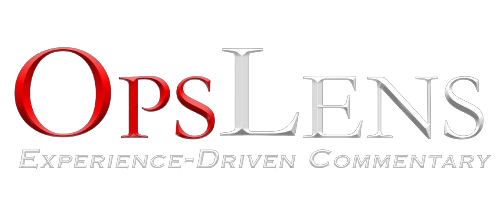At a recent diplomatic gathering in Brussels, U.S. Secretary of State Mike Pompeo addressed an audience of European officials and heads of state. The speech took place at the public policy think tank the German Marshall Fund of the United States (GMF) in the city, an appropriate venue for the topic the secretary of state wanted to address: “Restoring the Role of the Nation-State in the Liberal International Order.”
Everyone understands the current administration is an advocate of the current so-called nationalist trend taking place in the Western world. President Trump’s “America first” policy has been echoed in a string of elections wins from Italy’s Five Star/right wing league alliance, to the anti-immigration Sweden Democrats (SD), to the near-miss of Marine Le Pen’s National Front during the last election in France. All of these events over the past two years have given a louder voice to the critics of supranational governance. Now, with the European Union going through upheaval as a dysfunctional Brexit lurches forward, the administration took the opportunity to lay out in front of Europe what it sees as all the shortcomings of globalism—or more specifically, its manifestation at the diplomatic level: “Multilateralism.”
Pompeo’s choice of venue could not have been better. The German Marshall Fund is a policy forum that in essence was the direct outgrowth of the Marshall Plan, the post-World War II European recovery program promoted by then- Secretary of State George Marshall. The Plan was the first step in solidifying U.S. involvement in Europe over the rest of the century, a fact that was welcomed in a continent constantly under threat from the Soviet juggernaut. In 1972, on the 25th anniversary of the Plan’s implementation, West Germany donated the funds to establish the GMF as a means of “strengthen[ing] transatlantic cooperation on regional, national, and global challenges.”
Pompeo opened by recalling the origins of the current alliance between the U.S. and Europe, citing his predecessor State Secretary Marshall. As the former secretary did, Pompeo acknowledged the need for “unit[ing] sovereign nations all around the globe.” At the same time, said Pompeo, no international body “can replace the nation-state as the guarantor of democratic freedoms and national interests.” Pompeo quoted Marshall himself in a speech he delivered to United Nations General Assembly back near the time of its formation in 1948, echoing that “international organizations cannot take the place of national and personal effort or of local and individual imagination; international action cannot replace self-help.”
Driving this point home, Pompeo took several jabs at various international organizations, pointing to their ineffectiveness, and in some cases, the absurdity of their policies.
Regarding the African Union, Pompeo asked if the organizations really “advance the mutual interest of its nation-state members.” Turning to the UN, Pompeo asserted that “anti-Israel bias has been institutionalized” and that “regional powers collude to vote the likes of Cuba and Venezuela onto the Human Rights Council.” Regarding international monetary agencies, Pompeo criticized the World Bank and the International Monetary Fund (IMF) for “counsel countries who have mismanaged their economic affairs to impose austerity measures that inhibit growth.” According to the secretary, these policies are out of touch with the World Bank and IMF’s original mandates to “help rebuild war-torn territories and promote private investment”
Many observers have been quick to criticize the GMF speech, accusing Pompeo of negating any utility of international cooperation.
Unfortunately, this type of attack on the nationalist argument misses the point completely. Hardly anyone can take even a cursory glance at world history, especially that of the last 100 years, and deny the importance of international cooperation. Pompeo made a point to acknowledge the value of many U.S. partners from the Western alliance in bringing down the Berlin Wall, to NATO’s efforts today in the war on extremism and militancy. Pompeo even referred to the EU as a valuable partner, stating unequivocally that the United States has “benefited enormously” from the Union’s success.
The single point Pompeo was trying to drive home should be obvious: multilateralism has its limits. An economist might refer to this as the diminishing returns problem. While collaboration between countries clearly has its pros (and in some cases is absolutely essential for mutual survival) at some point, too much cooperation becomes detrimental. Pompeo’s speech was a call for leaders to ask the vital question: Where is the line of optimal cooperation and optimal independence? As Pompeo put it: “Multilateralism has too often become viewed as an end unto itself. The more treaties we sign, the safer we supposedly are. The more bureaucrats we have, the better the job gets done. Was that ever really true? The central question that we face is that – is the question of whether the system as currently configured, as it exists today, and as the world exists today – does it work? Does it work for all the people of the world?”
Pompeo was also urging his listeners to not pretend like the question doesn’t exist. Doing so will only lead to upheaval in the end. “But Brexit – if nothing else – was a political wake-up call,” the secretary said early in his address. One might add to this “wake up call” the aforementioned wins of nationalist movements across the Western world.
At the end of the day, Pompeo’s message was not to put down the multilateral system in place today, but rather a call to save it. As the very title of the speech implies, Pompeo, being a level-headed nationalist, wants to restore the role of the nation-state within the international order, not remove nation-states from that order.
To our chagrin, any criticism of the status quo is often taken as an attack on the very concept of multilateralism. No progress can be made if the proponents of multilateralism do not concede to its limits.
